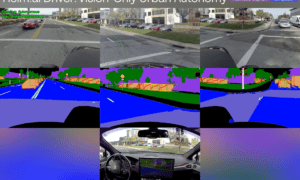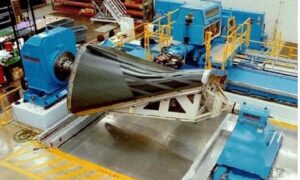The hospitality industry is no stranger to innovation, but in recent years, technological integration has leaped forward, particularly in beverage management. With increasing competition, razor-thin margins, and ever-evolving guest expectations, bars, restaurants, hotels, and resorts must embrace innovative systems to streamline operations, enhance customer experience, and maximize profits. This shift marks the rise of innovative beverage management—a convergence of data analytics, automation, IoT, and artificial intelligence redefining how drinks are served, tracked, and enjoyed.
The Evolution of Beverage Management
Traditionally, beverage management was a manual and often cumbersome process. Inventory had to be counted by hand, losses tracked through observation, and purchasing managed through guesswork or rudimentary spreadsheets. The risk of errors, theft, and overstocking was high, and valuable insights were often buried under layers of analog processes.
Today, innovative beverage management systems offer an all-encompassing approach that brings transparency, control, and efficiency to every stage of the drink lifecycle—from procurement to pour. These systems combine hardware and software to provide real-time insights into inventory levels, consumption patterns, and financial performance. The benefits extend beyond operations to touch marketing, sustainability, and customer satisfaction.
Key Technologies Powering Smart Beverage Management
1. Internet of Things (IoT)
One of the biggest enablers of innovative beverage management is IoT. Sensors placed on liquor bottles, kegs, and coolers can monitor everything from volume and temperature to pour rates and freshness. These sensors transmit data to a central system, allowing bar managers to detect overpouring, track high-demand products, and even identify trends like peak consumption times.
For instance, smart keg tracking devices provide real-time visibility into beer levels, helping venues avoid the dreaded “out-of-stock” scenario during rush hours. Temperature sensors in wine storage areas ensure that bottles are maintained optimally, preserving quality and taste.
2. Cloud-Based Inventory Systems
Cloud platforms allow businesses to centralize their beverage management operations across multiple locations. These systems update inventory in real-time and can automatically generate reorder suggestions based on sales data, past usage, and vendor lead times.
Cloud access also means managers and owners can track performance from anywhere, using mobile apps or dashboards. It’s now possible to receive alerts for inventory discrepancies, track supplier reliability, and generate customized reports for decision-making—all without being physically present at the bar.
3. Artificial Intelligence (AI) and Machine Learning
AI takes beverage management a step further by enabling predictive analytics. To forecast demand, machine learning algorithms can analyze historical sales data and external factors like holidays, weather, or local events. This insight minimizes waste, optimizes purchasing, and ensures customer favorites are always in stock.
AI also powers recommendation engines that suggest drink pairings or upsell premium alternatives to customers based on their previous purchases or preferences. This personalization not only boosts sales but also enhances the guest experience.
4. Automated Dispensing Systems
Robotic bartenders and bright dispensers are no longer futuristic concepts. These systems can measure and pour drinks with millimeter precision, eliminating overpouring and ensuring consistent quality. Some dispensers can be programmed to serve cocktails based on specific recipes, maintaining brand consistency across venues and shifts.
For high-volume environments like stadiums, casinos, or cruise ships, automated systems can serve thousands of drinks per hour while capturing real-time data for analytics. They also enhance hygiene and reduce labor costs—an important consideration in today’s staffing landscape.
5. POS Integration and Analytics
Point-of-sale (POS) systems are the nerve centers of modern hospitality operations. When integrated with innovative beverage management solutions, POS data becomes a goldmine. Managers can match sales with inventory depletion to detect shrinkage, fraud, or inefficiencies. Menu engineering becomes easier when backed by accurate profit-per-item data, helping identify which drinks to promote or retire.
Advanced analytics dashboards aggregate this information, providing actionable insights into what’s working and needs adjustment. They allow businesses to make data-driven decisions rather than relying on intuition.
Benefits of Smart Beverage Management in Hospitality
1. Reduced Waste and Shrinkage
Beverage losses due to overpouring, spillage, and theft can significantly impact profit margins. Innovative beverage management systems track and reconcile every pour with sales, reducing discrepancies and enhancing accountability. With accurate portion control, even premium spirits and wines are served without waste.
2. Operational Efficiency
Hospitality venues free up valuable staff time by automating routine tasks such as inventory checks, order generation, and reporting. This allows team members to focus more on guest interaction and service quality than back-of-house logistics.
3. Enhanced Guest Experience
With better stock visibility and predictive ordering, businesses are less likely to run out of popular beverages. Automated systems ensure consistency in cocktail recipes, ensuring that guests receive the same quality drink every time. AI-driven personalization can also create a “wow” factor by suggesting drinks tailored to individual tastes.
4. Improved Financial Performance
Real-time inventory and sales tracking allows for more accurate cost control and profit margin analysis. Businesses can identify underperforming products, adjust pricing strategies, and reduce carrying costs associated with overstocking. This leads to more informed budgeting and better financial health.
5. Sustainability and Compliance
Smart beverage management contributes to sustainability by reducing waste and promoting more efficient resource use. For example, tracking usage patterns can help adjust order quantities, preventing spoilage. Moreover, automated systems ensure compliance with local alcohol regulations, such as age verification and licensing requirements.
Case Studies and Real-world Applications
Hotel Chains and Resorts
Large hospitality groups like Marriott and Hilton have begun integrating innovative beverage management across their food and beverage operations. Centralizing inventory data from multiple properties allows them to negotiate better rates with suppliers, standardize beverage programs, and ensure consistency across locations.
Independent Bars and Restaurants
Smaller operators benefit from cloud-based tools that offer robust beverage management features without the need for expensive hardware. These tools provide mobile access to inventory, digital ordering, and vendor communication from a single platform.
Cruise Lines and Casinos
In environments where speed and scale are critical, automated dispensers and real-time analytics enable operators to serve thousands of guests efficiently. These systems also generate invaluable data on consumption trends and guest preferences.
Overcoming Implementation Challenges
Despite its many advantages, transitioning to innovative beverage management has hurdles. Initial investment in technology can be substantial, and staff must be trained to adapt to new systems. Integration with existing POS or ERP solutions may require customization. However, the long-term ROI, regarding reduced losses, increased sales, and operational savings, often outweighs these upfront costs.
To ensure a smooth implementation:
- Start with a pilot program in one location or department.
- Choose scalable systems that can grow with your business.
- Involve frontline staff in training and system configuration.
- Continuously analyze data and adjust strategies accordingly.
The Future of Beverage Management
The future of beverage management lies in even greater connectivity and automation. Expect to see innovations such as:
- Voice-activated inventory management tools.
- Augmented reality interfaces for bartending training.
- Blockchain for transparent supply chain management.
- Smart fridges that automatically reorder based on stock levels.
- Deeper AI integrations for hyper-personalized recommendations.
As hospitality embraces these trends, innovative beverage management will become a foundational pillar, driving profitability, customer loyalty, and sustainability.
Final Thoughts
Innovative beverage management offers a game-changing advantage in an industry where guest satisfaction, operational efficiency, and profitability must coexist. By integrating advanced technologies, hospitality businesses can stay ahead of the curve, delight their customers, and achieve sustainable growth.
Now is the time for bars, restaurants, and hotels to rethink how they manage their beverage programs—not as a back-office function but as a strategic asset powered by innovation.

































